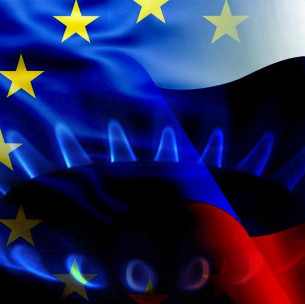
Yemen’s defiant Houthi rebels are disrupting global shipping and putting a major dent in the United States’ image as the all-powerful global hegemon; several Western donor countries have pulled the plug on further funding for Palestinian aid group UNRWA after Israeli accusations of its complicity with Hamas; and experts weigh in on the recent standoff between the State of Texas and the US federal government over border controls as the US faces an unprecedented wave of illegal immigration. These stories topped Monday’s newspaper headlines across Russia, according to TASS News Agency.
Izvestia: Defiant Houthis put major dent in all-powerful image of confused, rudderless US
The recent escalation of hostilities in the Red Sea between the United States and Yemen’s Iranian-backed Ansar Allah (Houthi) rebel militia has not only provoked price hikes, but has also affected Washington’s reputation as the regional hegemon and guarantor of international shipping rights and freedom of navigation. Since November, the Houthis have used more than 200 drones and 50 ballistic and cruise missiles to mount attacks on Israeli vessels and other ships serving Israeli ports in the Red Sea, the Ansar Allah (Houthi) leader said on Thursday. The situation has impacted global supply chains, with at least 2,400 ships diverting their routes, as they headed to Europe via the Cape of Good Hope in South Africa, according to the Israeli news portal Calcalist.
As the intensified attacks by the US and UK-led Western coalition on Houthi targets in Yemen have failed to produce the desired results, the Houthis are now targeting their missiles and drones against British and US commercial vessels.
The administration of US President Joe Biden pinned large hopes on resolving the situation in Yemen and achieving peace in the Middle East, but due to the aggravation with the Houthis, the US now finds itself trapped with room for maneuver sharply narrowing, Middle East area expert Roland Bidzhamov told Izvestia. "The Houthis will play the role of an irritating factor against the backdrop of the commencing [presidential] election race in the United States, and the [incumbent] Democrats’ policy failure in Yemen will cost them greatly. Reducing tensions in the region would require resolving the situation around the war in the Gaza Strip, where the White House [is not simply an innocent bystander that is powerless to affect the situation]," the expert maintains.
Washington is even seeking Beijing’s help in resolving the situation in the Red Sea. The Financial Times reported on Wednesday, citing sources, that the Biden administration asked Beijing to call on Tehran to rein in the Iran-backed Houthis. US Secretary of State Antony Blinken and other senior US officials have raised the issue with their counterparts in the past few months, but diplomatic pressure on Beijing has not brought results.
Washington’s plea to China to influence the Houthis via Tehran is an outward sign of high-level confusion behind the scenes in Washington, regional expert Abbas Jume says. "Washington has gotten used to the idea of controlling everything, but there is a small nation here that has nothing to lose, and they refuse to obey [US] commands. The Americans are simply stumped [as to how to proceed]," he concluded.
Vedomosti: West halts funding for UNRWA after Israel says aid group party to Hamas attack
France, the United States and Germany paused funding for the UN agency for Palestinians, the United Nations Relief and Works Agency for Palestine Refugees in the Near East (UNRWA), soon after reports emerged alleging that a dozen of its staffers were involved in the October 7 attack on Israel. Great Britain, Scotland, Canada, Australia, Finland, the Netherlands and Switzerland followed suit. According to UN data, the US and Germany are the largest UNRWA sponsors with the two countries alone in 2022 accounting for half of the $1.1 bln utilized by the aid group.
The Western donors decided to cut their funding for the UNRWA after Israeli Defense Minister Yoav Gallant accused 12 UNRWA employees of being complicit in radical Palestinian movement Hamas’ October 7 cross-border rampage against the Jewish state and described them as "humanitarian workers with blood on their hands."
The situation around the UNRWA may prompt reform, said Dmitry Maryasis, leading researcher with the Department of Israel Studies at the Russian Academy of Sciences’ Institute of Oriental Studies. There is the office of the UN High Commissioner for Refugees, which tackles issues facing refugees globally, while a separate structure deals with Palestinians. In addition, the expert continued, the UN High Commissioner and UNRWA use different criteria for defining refugee status. "From my point of view, folding these two structures into one would make sense for the sake of effective management and rational spending," he insists.
According to Russian International Affairs Council (RIAC) expert Kirill Semyonov, Israeli Prime Minister Benjamin Netanyahu is seeking a short-term truce with Gaza Strip-based Hamas amid a deadlocked military operation by the Israel Defense Forces (IDF) in the Palestinian enclave, but, on the whole, the Israeli premier is interested in a protracted Gaza conflict. "The longer the hostilities last, the longer he can stay in power," Semyonov said. Meanwhile, Hamas is seeking a humanitarian pause to enable Palestinian civilians to evacuate from dangerous battle zones and ease the humanitarian situation in the region. And, unlike Israel, the leaders of Palestinian groups would like a short-term truce to morph into a permanent ceasefire, the expert argues.
Izvestia: Experts weigh in on US state-federal border showdown between Texas, Washington
The recent standoff between the State of Texas and the US federal government in Washington was driven by a number of missteps by the Biden administration as well as by its abject failure to ensure security on the US southern border with Mexico amid an unprecedented wave of illegal immigration into the US, while simultaneously asking Congress to rubber-stamp runaway spending on the administration’s proxy war in Ukraine as well as equally generous largesse to support Israel in its conflict with Hamas in the Gaza Strip, experts interviewed by Izvestia say. Meanwhile, the Texas state government’s non-compliance with the Supreme Court ruling in favor of the federal government, which has ultimate constitutional authority over the border and immigration issues, is seen as an attempt by Republicans to consolidate conservative ranks within the electorate ahead of the coming presidential election in November.
The growing crisis on the US border with Mexico, triggered by an influx of illegal immigrants, has escalated into an open conflict between Texas and the federal government. The escalation coincided with, or was perhaps sparked by, the 2024 presidential contest, which has already begun as the first state primaries and caucuses are held, with the issue of homeland security standing high on the GOP agenda. And of course, these two events cannot be analyzed in isolation, Vladimir Vasilyev, senior research fellow at the Russian Academy of Sciences’ Institute for US and Canadian Studies, told Izvestia. "During his presidency, [presumptive Republican nominee] Donald Trump laid an emphasis on domestic policies, including the border issue, while Joe Biden has focused on foreign policy, mostly the Ukraine crisis and providing assistance to Kiev ['for as long as it takes']," the expert argues.
According to Vasilyev, Biden’s bid to secure over $100 bln in additional funding for Ukraine and Israel is also playing a major role here. "The Republicans insist that national border security, rather than Ukraine, remains a priority, but the administration does not want to compromise on the issue," he added.
In general, protests in Republican-controlled Texas are an attempt to show the Democrats ahead of the November election that any election fraud, similar to what is widely alleged to have occurred during the 2020 election, will be inadmissible and that destabilization could follow, Konstantin Blokhin, leading researcher at the Russian Academy of Sciences’ Center for Security Studies, maintains. "These events should be seen through the lens of internal political strife. This is a kind of dress rehearsal ahead of the election and a signal to the incumbent Democratic administration," he believes.
However, the expert downplayed any serious debate about a potential "Texit," or secession of Texas from the federal union to regain its mid-19th-century status as an independent republic, as any Texas exit could have a domino effect with other disaffected "red" (Republican) states potentially following suit. Moreover, any extreme manifestations of anti-federal, opposition sentiment would likely be suppressed by the federal authorities, Blokhin added.
Nezavisimaya Gazeta: Washington puts new LNG export licenses on pause
Last year, the United States was the world’s No. 1 supplier of liquified natural gas (LNG), exporting the bulk of its LNG to Europe, which sought to wean itself off of Russian gas. The US exported more than 90 mln metric tons of LNG, leaving Australia and Qatar behind, while the three countries covered a combined 60% of global demand for LNG.
Meanwhile, Russian officials have pledged to increase LNG exports. In 2023, Russia produced 32.33 mln metric tons of LNG, a 2 mln metric ton increase from 2022 and a 22 mln metric ton rise from 2010. According to the Developing Energy government program, Russia’s LNG production should reach 47.3 mln metric tons this year.
However, Russian experts argue that the European market is lost both for Russian LNG and pipeline gas exports. While Russian LNG exports could grow by 10% to 15% in 2024, exports to Europe will gradually decline, Alexander Bakhtin, an investment strategist at BCS World of Investments, said. "The sanctions pressure on Russia and its exports will hardly ease in the coming year, making any improvement in Russia’s posture on the European gas market an unlikely scenario, regardless of changes in US export policy," the analyst concluded.
The decision announced by the US last weekend to halt LNG export approvals will hardly affect Russia, as Europe is no longer a key market for Russia, while the consumption of Russian LNG in Europe rises if there is a deficit in gas availability in underground storage facilities, Vladislav Antonov, a financial analyst at BitRiver, told Nezavisimaya Gazeta.
Natalia Pyryeva, an analyst at the Tsifra Broker investment company, does not rule out that the slowdown in US LNG exports could benefit the development of the Russian gas business. "While the US is the world’s No. 1 LNG exporter with a 22% share of the global market, Russia accounts for a mere 7.5% of global LNG exports. Hence, a decline in the US market share gives other market players an opportunity to increase their presence, and Russia may as well be one," she argues.
Kommersant: Russian electricity supplies to foreign customers drop 21%
In 2023, Russia reduced its electricity exports by more than a fifth to 10.7 bln kWh. Russia now exports the bulk of its electricity to Asian markets, but the country needs to invest more in developing its power generation.
Inter RAO, Russia’s largest diversified utilities holding company, for one, had to cut its exports to China by one-third amid a lack of capacities in Russia’s Far East. In 2024, the company expects to halt the decline in its exports abroad by stabilizing exports.
The nearly 21% year-on-year drop in annual electricity supplies comes mostly amid a total halt of Russian exports to the European Union, while the bloc historically was the largest and most profitable market for Inter RAO.
Increasing electricity supplies to Asia looks quite reasonable to Sergey Rozhenko at Kept, as he expects the trend to continue in 2024. While Russia will keep up electricity exports to Kazakhstan amid a structural deficit in generation there, the situation is quite opposite with China, he explains. "The Far East is showing the highest growth of Russian electricity demand, but there, just like in Kazakhstan, a major period for investment in generation has been missed," Rozhenko says. "The Far East simply lacks any available reserves to meet the growing Chinese demand," he laments.
TASS is not responsible for the material quoted in these press reviews









